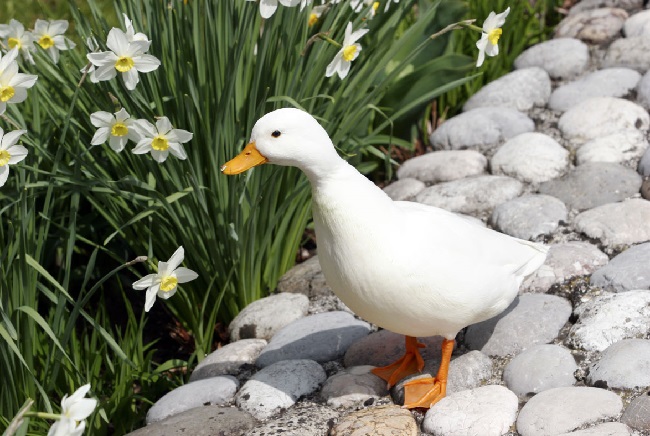While the idea of having a pet duck may seem unusual, ducks are increasingly being recognized for their unique charm and personality. This article will dive into the best breeds to consider if you’re contemplating adding a duck to your family.

Understanding Pet Ducks: A Brief Overview
Ducks, with their amusing waddles and enchanting quacks, make intriguing pets. They offer companionship, are known to have personalities just as diverse as cats and dogs, and some breeds even lay eggs that you can use in your kitchen.
Read Also:
However, it’s crucial to understand that ducks require specific care, including suitable housing, a balanced diet, and social interaction.
Best Pet Duck Breeds
Not all ducks are created equal. Some are better suited to be pets than others. Here are some breeds that make particularly good companions:
1. Call Ducks: Small and manageable, Call Ducks are an excellent choice for first-time duck owners. They’re friendly, good with children, and available in many color varieties.
2. Pekin Ducks: Famous for their white feathers and orange bills, Pekins are friendly, calm, and make excellent pets. They’re also prolific egg layers, which can be a bonus.
3. Cayuga Ducks: These ducks have a striking iridescent green-black plumage and a friendly disposition. They’re hardy and handle colder climates well.
4. Indian Runner Ducks: Known for their upright stance and active nature, Indian Runner Ducks are great pets. They’re prolific layers and come in a wide range of colors.
5. Rouen Ducks: Resembling a larger version of the Mallard, Rouens are calm and friendly, making them suitable pets.
Care Requirements for Pet Ducks
Before adopting a duck, understand the key elements involved in their care:
1. Housing: Ducks need a safe, predator-proof house that protects them from the elements. They also need a secure outdoor area to forage and exercise.
2. Nutrition: Ducks require a diet of waterfowl pellets supplemented with grains, leafy greens, and vegetables.
3. Water Access: As waterfowl, ducks need a water source deep enough to dunk their heads in, and ideally, swim.
4. Social Needs: Ducks are social animals and ideally should be kept with at least one other duck for company.
5. Veterinary Care: Just like any pet, ducks need regular veterinary check-ups and vaccinations.
Challenges of Duck Ownership
Duck ownership can come with some challenges. Ducks can be messy, especially around water. They also require long-term commitment as they can live up to 10-20 years. Zoning laws may also restrict keeping ducks, especially in urban areas.
Read Also:
Conclusion
Ducks can make delightful pets for the right owners. They bring joy, laughter, and even eggs to your home.
However, potential duck owners should consider factors such as their living situation, time commitment, and ability to provide the necessary care a duck requires. Hope now you know about all the information.
If you believe a duck might be the right pet for you, start by researching breeds, preparing the right housing, and connecting with a local vet experienced with ducks. Once these pieces are in place, you’ll be ready to welcome your new feathered friend into your home!
























